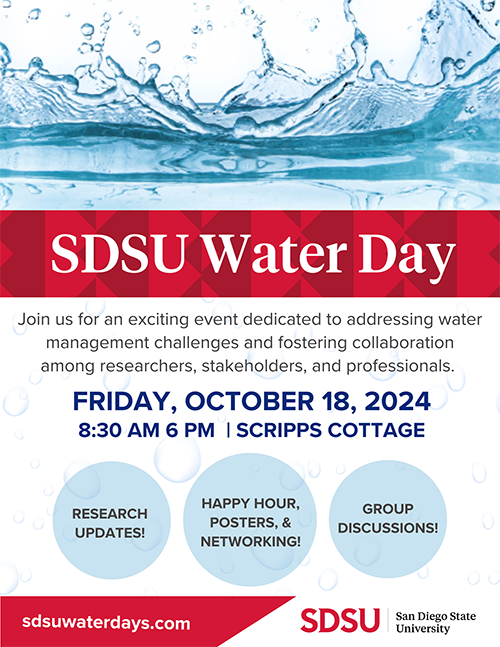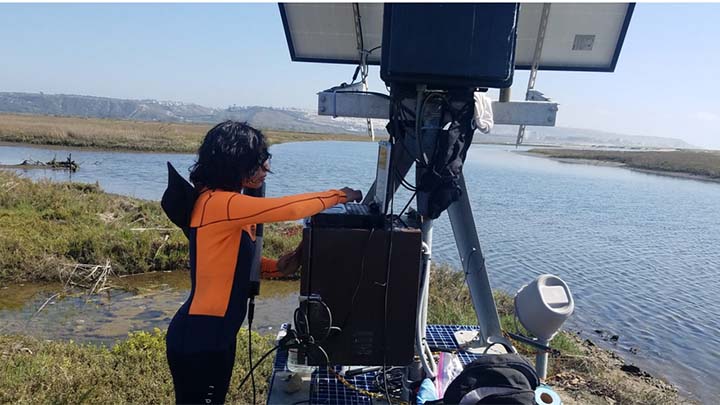
Mitigating the Effects of Water Scarcity
Water scarcity and quality problems occur in many regions of the world, particularly in areas with semi-arid to arid climates. Combined pressures of population growth, economic development, and climate variability expose such regions to water scarcity and are inspiring exploration of alternative sources and conservation strategies.
Blue Gold refers to the availability of fresh water and the health of watersheds that are inextricably linked and increasingly tied to issues of energy and technology as human population, societal demand, and climate change intensify.
The San Diego and US-Mexico Border region provides a natural laboratory for studying water resources in the context of scarcity and change. This area is prone to challenges such urban water supply, agricultural water management, and international water conflict and cooperation that are mirrored in many other regions. Research questions, methods, and findings generated in our region are likely to have global implications.
Blue Gold is one of three SDSU Areas of Excellence Initiatives that was approved in 2015. The initiative supports new tenure-track faculty positions that are allocated to advance existing and future areas of scholarly excellence, and to foster interdisciplinary collaborations in research and creative endeavors.
News and Events

SDSU Water Day
Friday, October 18, 2024
8:30 AM - 6 PM | Scripps Cottage
Join us for an exciting event dedicated to addressing water management challenges and fostering collaboration among researchers, stakeholders, and professionals.
Research updates!
Group discussions!
Happy hour, posters, and networking!
More info at: sdsuwaterdays.com

Sensors prove feasibility of real-time water quality reporting
The instruments were deployed in the Tijuana River Estuary, polluted by raw sewage flows from Mexico.
For anyone with a weather app on their smartphone, alerts to unhealthy air quality provided by real-time monitoring are just a tap away. Now San Diego State University researchers have proved the concept is just as feasible for water quality monitoring.
Sensors deployed in the Tijuana River Estuary, which is contaminated by untreated wastewater spilling out from Mexico, effectively detected both the presence and concentration of harmful compounds in the wetland that empties into the ocean near Imperial Beach.
SDSU scientists unveil early warning sewage-tracking system in Tijuana River
Scientists at San Diego State University have successfully completed a study with a new early warning system to track the levels of untreated sewage in the Tijuana River.
The team, led by SDSU geographer Trent Biggs and environmental engineer Natalie Mladenov, used specialized fluorescence sensors to detect and differentiate treated and untreated sewage where the river crosses the international border and in a creek of its estuary.
The team began work on the San Diego River, but quickly decided to move to the Tijuana River, where untreated sewage has flowed unabated for several years from broken wastewater infrastructure into the Pacific Ocean.